
Psychoneurological boarding schools, a kind of conveyor of fate, resemble a state within a state with its own laws.
The person who got there is not seen as a value, instead they are perceived as a thing – broken and unnecessary. The boarding system will never let him or her go. This totalitarian system, created by a totalitarian state, permeated with exploitation and violence against the individual, it worries not about the needs of its wards, but about its need for patients.
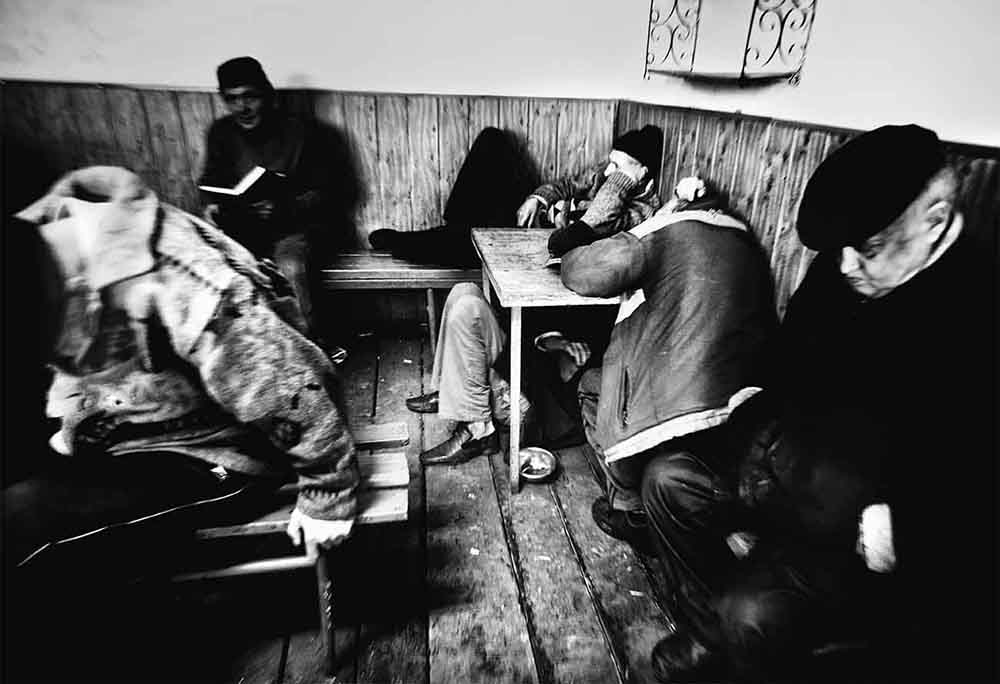
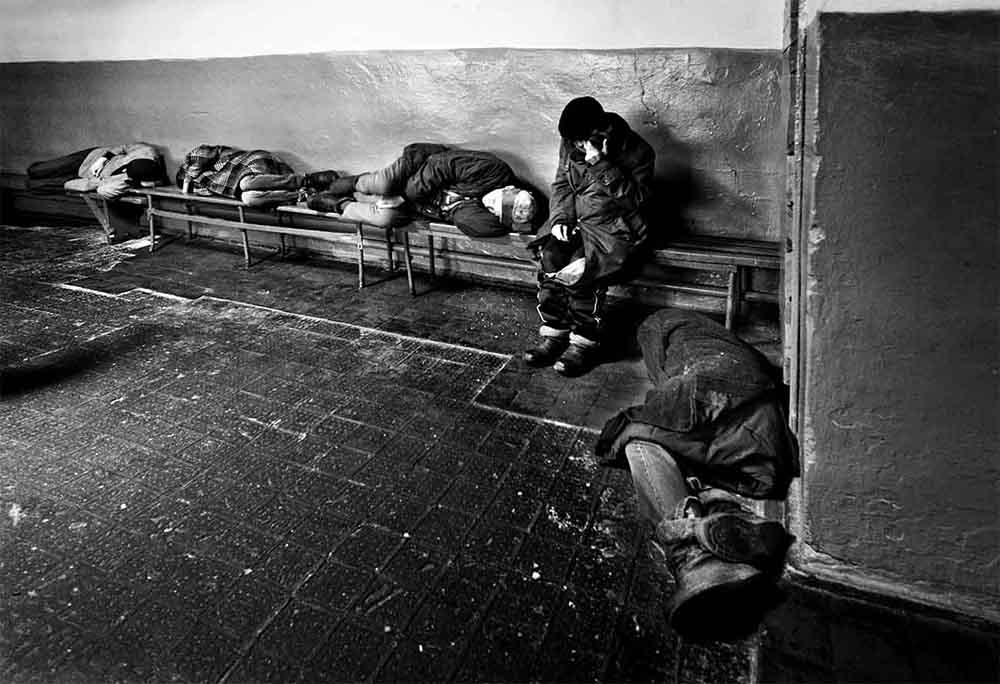
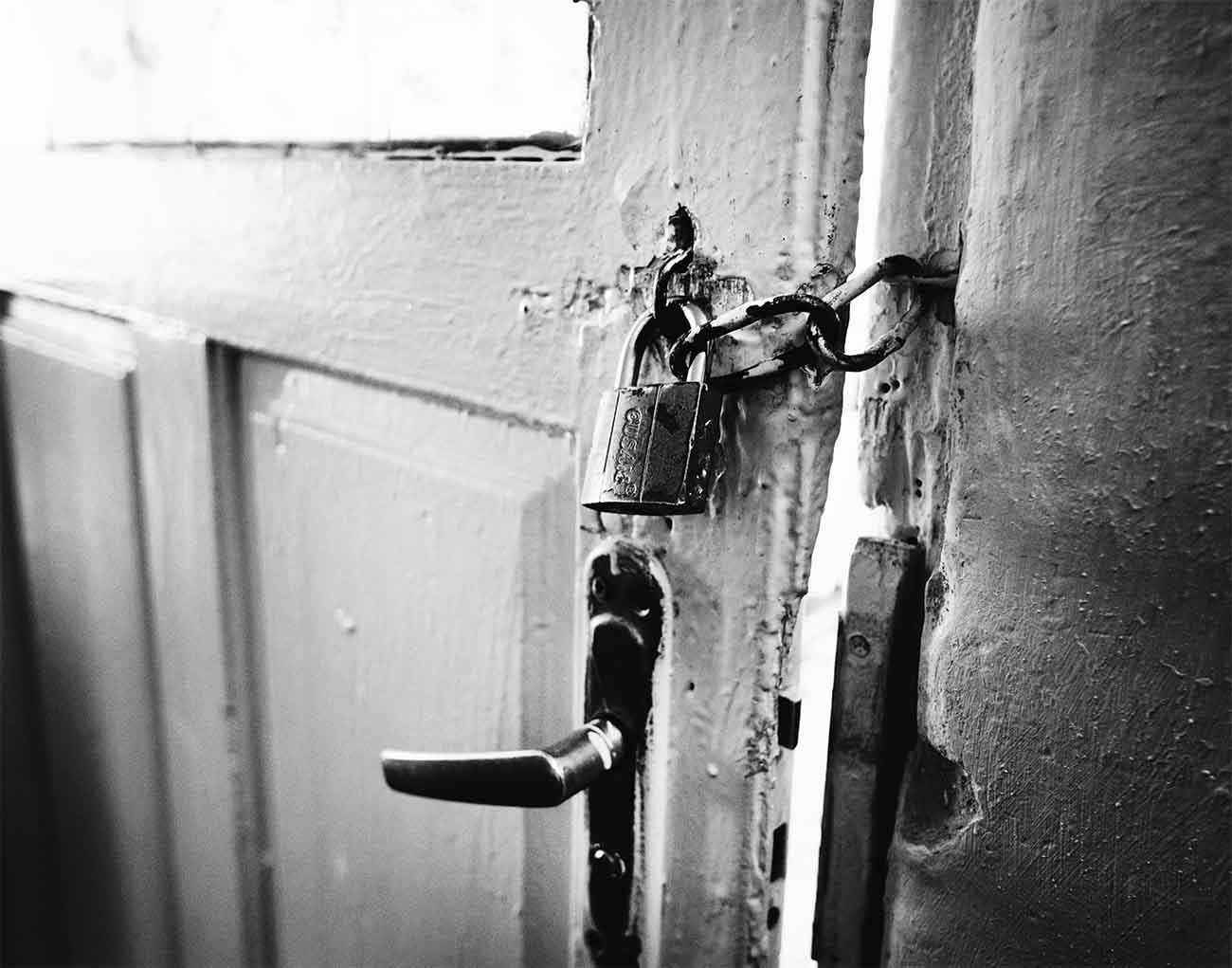
As soon as we entered the dormitory building of one of the neuropsychiatric boarding schools in Chernihiv Region, we were struck by the cleanliness and… empty bedrooms with beautifully made beds, empty games rooms, a reading room, a rehabilitation room… This is a classic picture that can be found in boarding schools. There is the only possible explanation – the wards are kept somewhere else. Our guesses were confirmed. Just imagine: it’s December outside, zero temperature, every day almost half of people are taken to another building and closed for the whole day in two rooms without glass on the windows, a toilet and access to drinking water.
People try to keep warm by pulling their outer clothing up to their ears, bending over to keep warm, someone is sleeping on a bench with their legs bent, and someone is trying to keep warm, leaning back against a barely warm radiator. It looks like the wards have fallen into suspended animation in order to somehow survive. This is repeated day after day, for years people endure bullying.
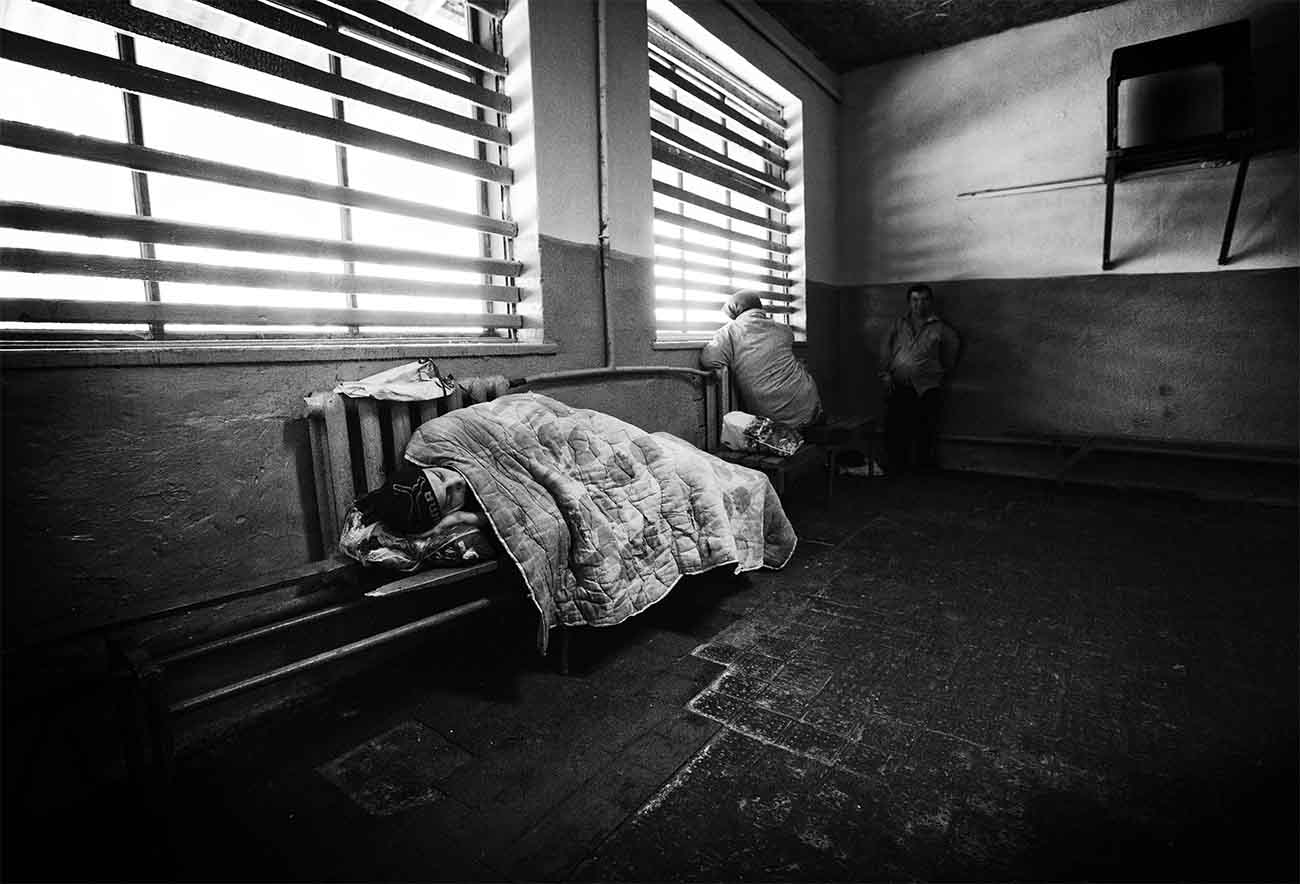
We walk along the corridor and see the locks on the painted white wooden doors of the rooms, where the wards are supposed to rest. During the day, access to sleeping places is strictly prohibited for almost all residents of the boarding school. The nurses try to justify themselves by the fact that the wards trample dirt on the floor, if they are left in the rooms. And they simply do not have time to wash the floor twice a day. Such cleanliness for the sake of cleanliness for the staff is more important than the comfort of the wards.
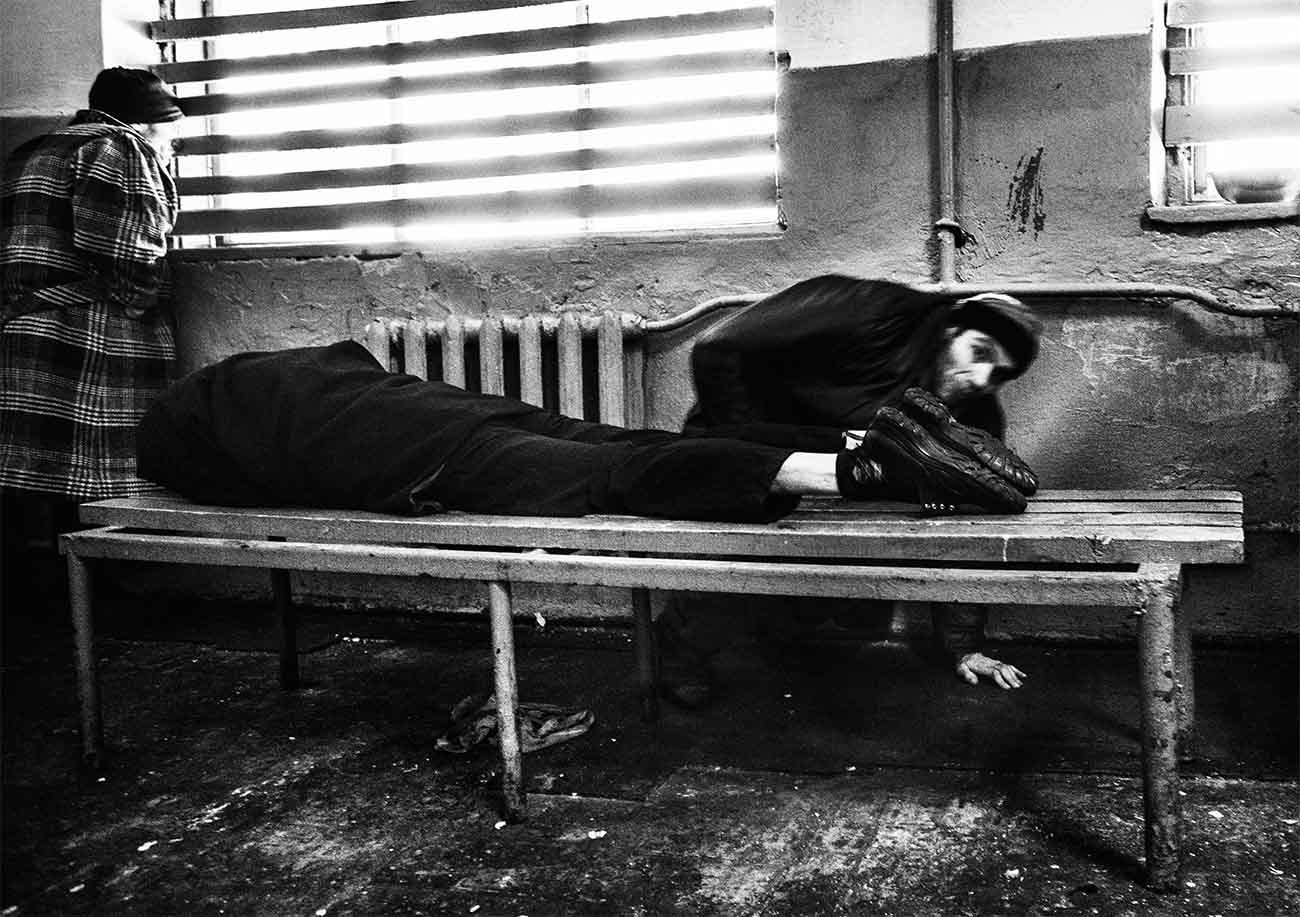
Agree, it is very convenient when several boarding school employees guard such a number of people who are locked up. I did not see the difference between barracks in a concentration camp and two rooms, where the wards sleep on a cold concrete floor all day and are tortured by cold instead of therapy and rehabilitation.
Can an ordinary person even imagine how it is to be isolated for years, not even within the territory of a boarding school, but in a room?! The personality is nothing here. If a person complains of pain, they ignore him, if he screams, they will give him or her a sedative, people here are used to enduring pain and torment for years.
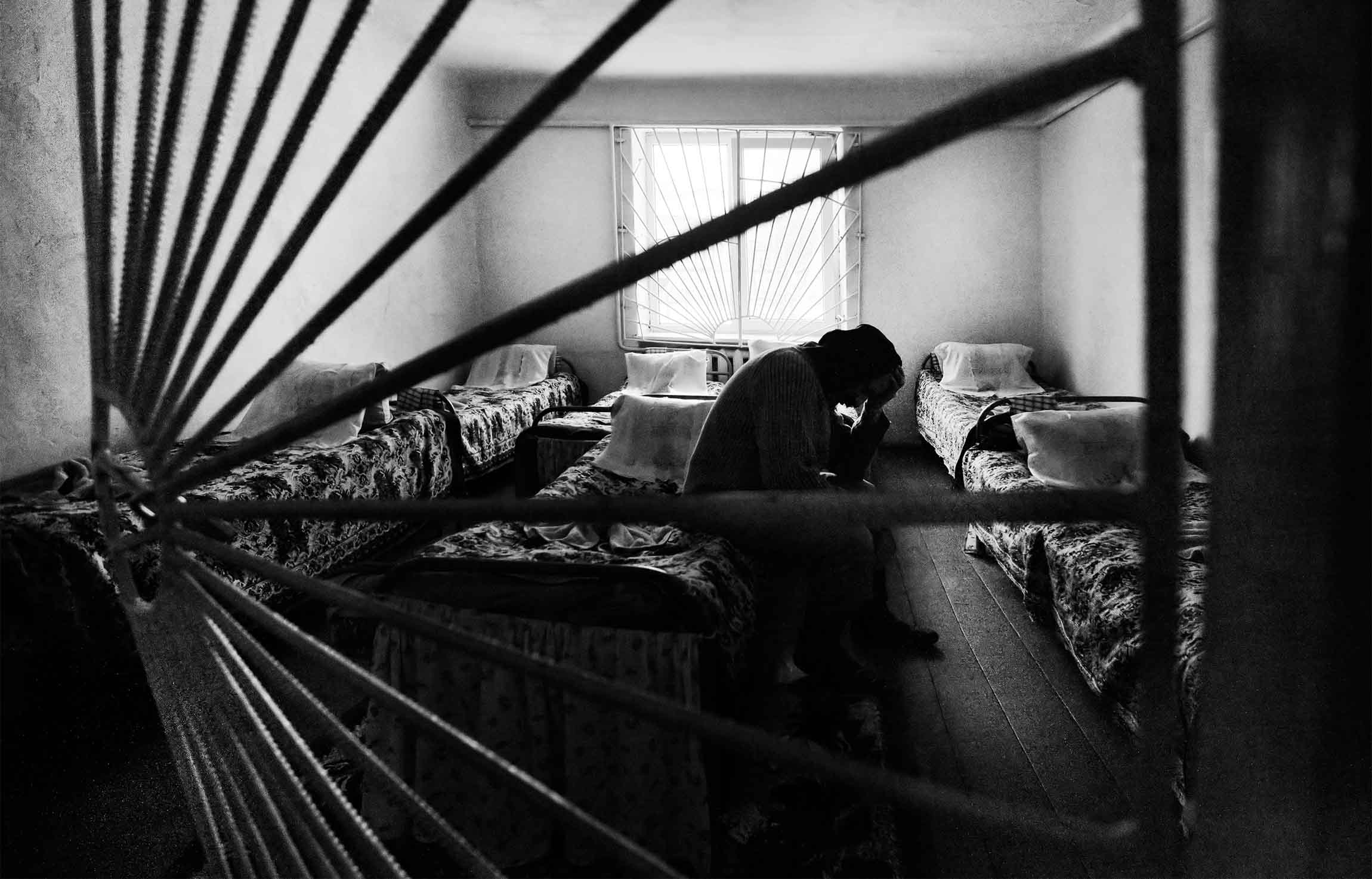
The boarding system erases individuality, the wards have almost nothing personal – no name, no clothes, no toothbrush. Underwear is shared and washed altogther, and then it is distributed to whomever fits in size. I open the nightstand by the perfectly made bed in the room – it’s empty. I ask the nurses, where are the personal belongings of the ward?
– Not allowed. But what can such a contingent have personal here? The false jaw is perhaps, – the nurse replied sarcastically.
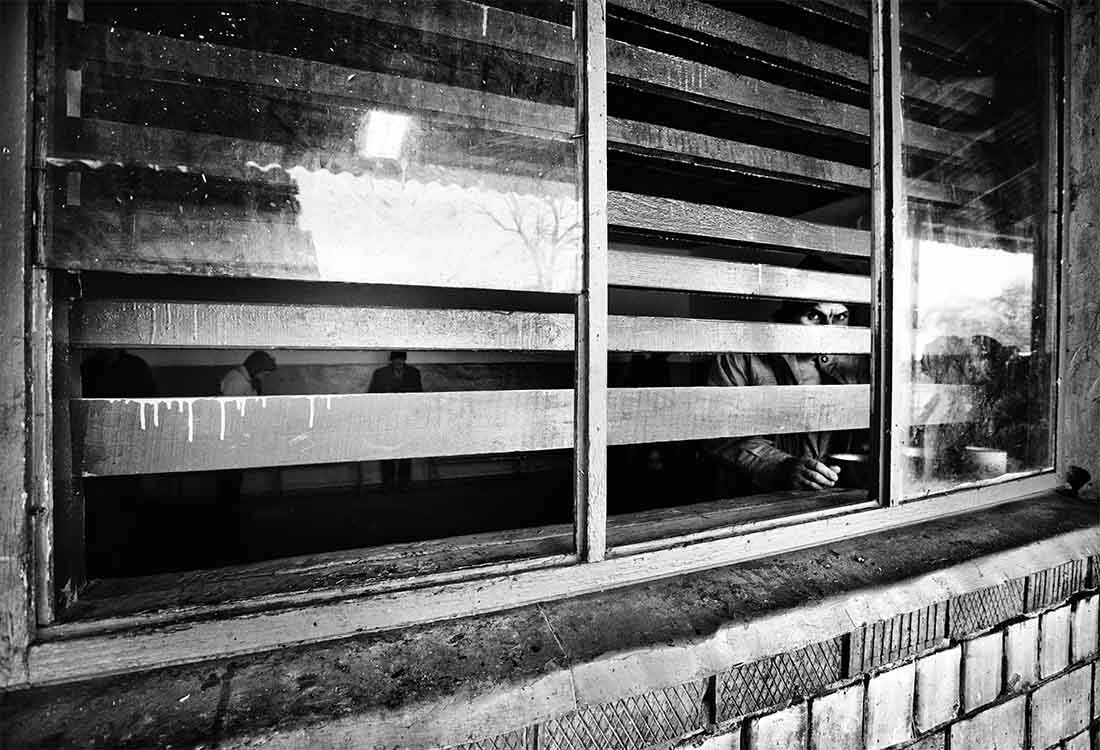
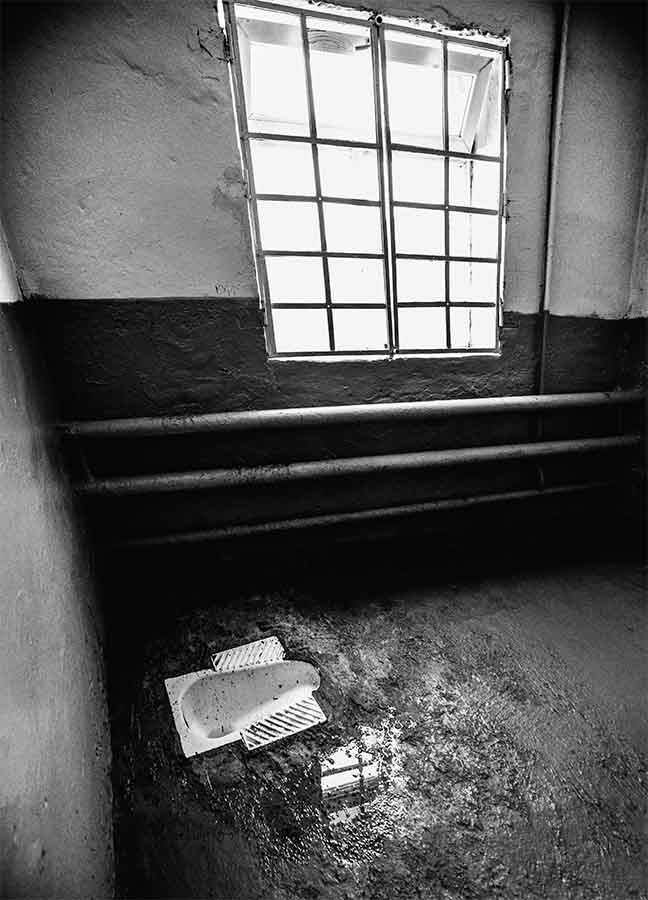
So a person lives here all his or her life – no one will hear his/her voice, he or she is invisible behind the wall of the boarding school, his/her complaints to others are nothing more than an inadequate madman, but he/she does not complain, because of fear.
The arrogance and sense of permissiveness of the administration and staff is amazing. I was shocked when not a doctor, not medical staff, as prescribed by the regulations, but a nurse closes the wards of the boarding school in a “stone bag”, or, more simply, a punishment cell, for a night, in which there is no bed, linen, hard equipment, nothing at all, except a narrow bench and a hole in the floor instead of a toilet.
The punishment cell here is a place of punishment, not a place of isolation in case a person can harm himself or others. In addition, such measures should be applied only for a short time and in strictly defined cases.

Here, the nurse plays psychiatrist, because the wards prevent her from sleeping at night, and she wants to rest on the night shift. I imagine how the same nurse goes home to her relatives after her shift at the boarding school and smiles at her children. Could she do this to her child? And when she comes back, she puts on a white coat and the guise of a sadist.
Residents of the boarding school give 75% of their pension for the fact that they will be looked after here, but in fact they sponsor their own torture. In their miserable shares of pensions, which amount to some 280-300 hrn., the administration also launched a hand – because, you see, it’s not enough. Without their consent, for these funds, the management of the institution buys Reebok sneakers for 2000 hrn.. and a shirt for 500 hrn., as well as several new electric kettles every month, which are nowhere to be seen in the rooms.
I was surprised by the creativity of the administration’s imagination: the wards in this boarding school order a paid subscription to the Uryadovy Kurier newspaper, although we did not see a single newspaper in stock. Do you often read the newspaper of the Cabinet of Ministers, which mainly publishes the laws of Ukraine?
I am outraged when the director of the boarding school spends a quarter of a million money of incapacitated wards on cigarettes in six months, buying Marlboro and Bond, because he himself smokes Marlboro and does not even hide it. This seems to be for people who are not aware of their actions and cannot even dress themselves. And the deputy director calmly and shamelessly proves to me that the ward, who has not left the institution since 1979, ordered women’s gel insoles for 450 hrn., however, they were somehow lost and no one can still find them.
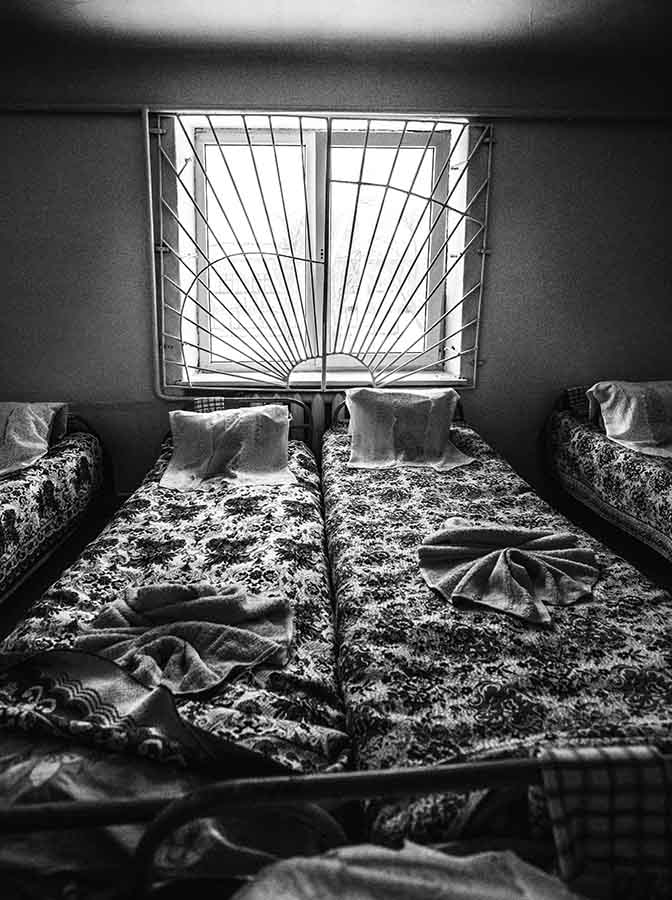
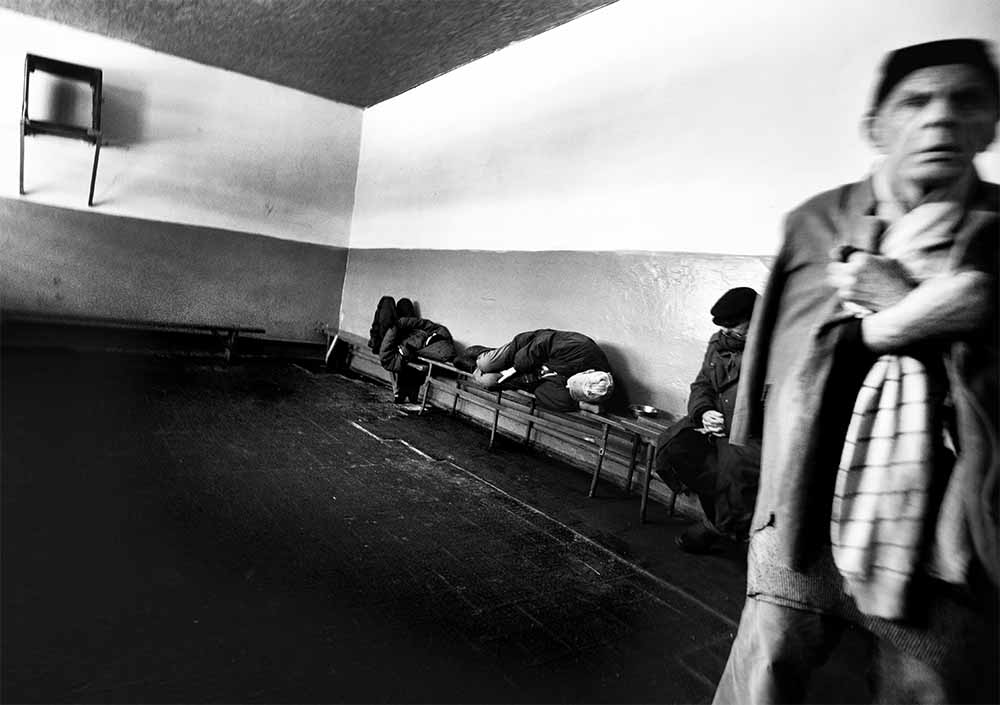
Cynicism and corruption in such closed institutions reach their climax, and the rights of the wards become nothing more than an empty phrase. It is beneficial for the administration of such institutions that among the wards there were more incapacitated – not ready for independent living, deprived of many rights – to manage pension, to make transactions.
Budgetary funds are allocated annually for his/her maintenance. If a person is young, these funds will go to the boarding school for decades. A director is usually appointed as a guardian, and the sick person becomes dependent on the institution for the rest of his/her life.
The director is a provider of social services and a guardian at the same time, he controls himself – this is a vicious circle, a conflict of interest and, in fact, a noose around the neck of the ward.
The closed nature of the system and institutionalization almost guarantees violation of the rights of the wards, they are treated like stupid children, and they use the principle “the less you know, the better you sleep”. The request of the ward to get acquainted with his own file, medical card, find out his diagnosis and the medicine that the psychiatrist prescribed for him will be ignored. He will learn about the deprivation of his legal capacity, taken without the knowledge of the ward, only when one day he will no longer receive pension funds.
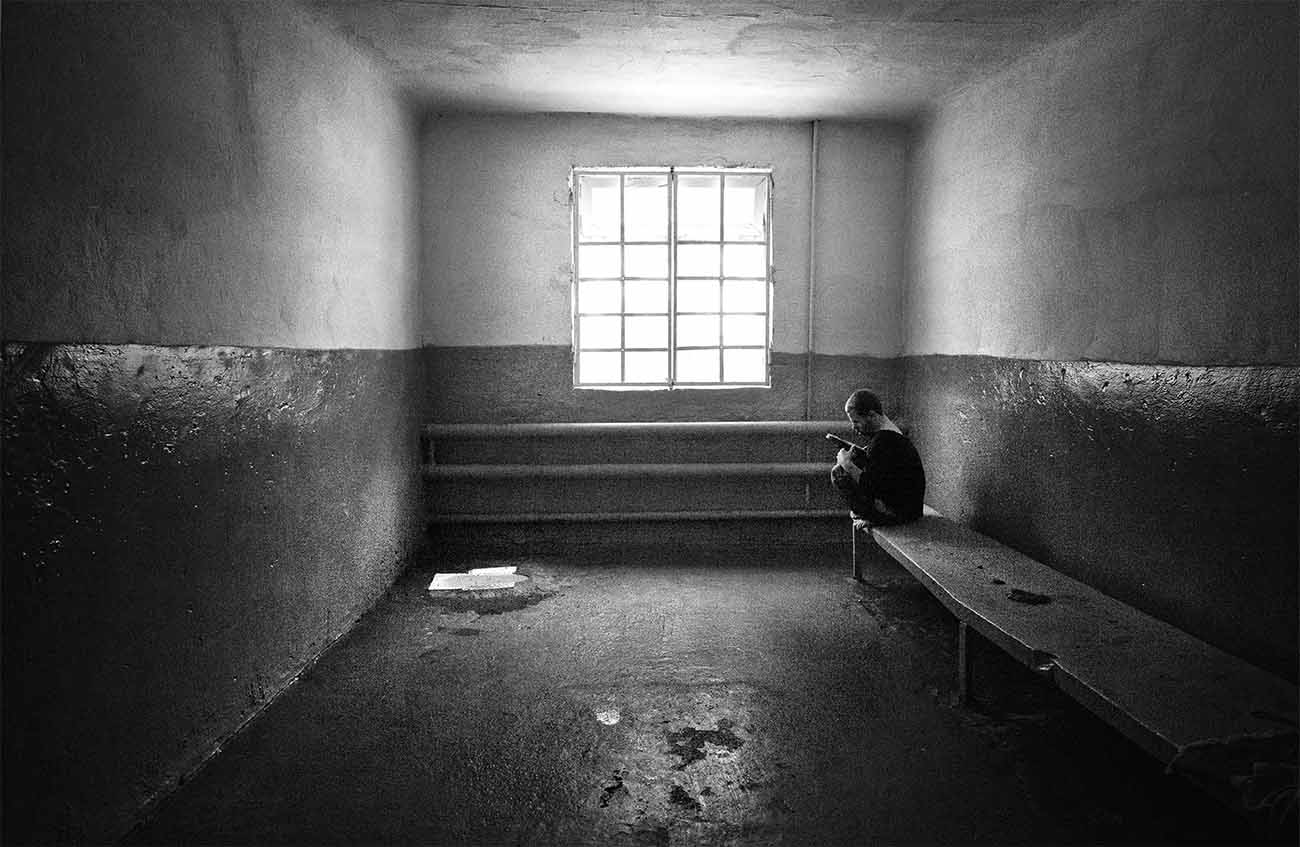
I come to the director of the boarding school to ask when was the last time the ward was examined by a doctor after a recent stroke, who lies with paralysis of half of her body – Alexandra Kolodko, and also how she is treated and what her medical prescriptions are. To which, after a pause, the director, obviously surprised, replies:
– Who is it? Do we have such a ward? – he is looking for a nurse, who begins to explain to him in a whisper who it is. The director realized that he was in an awkward position, and asked to find the documents in his office.
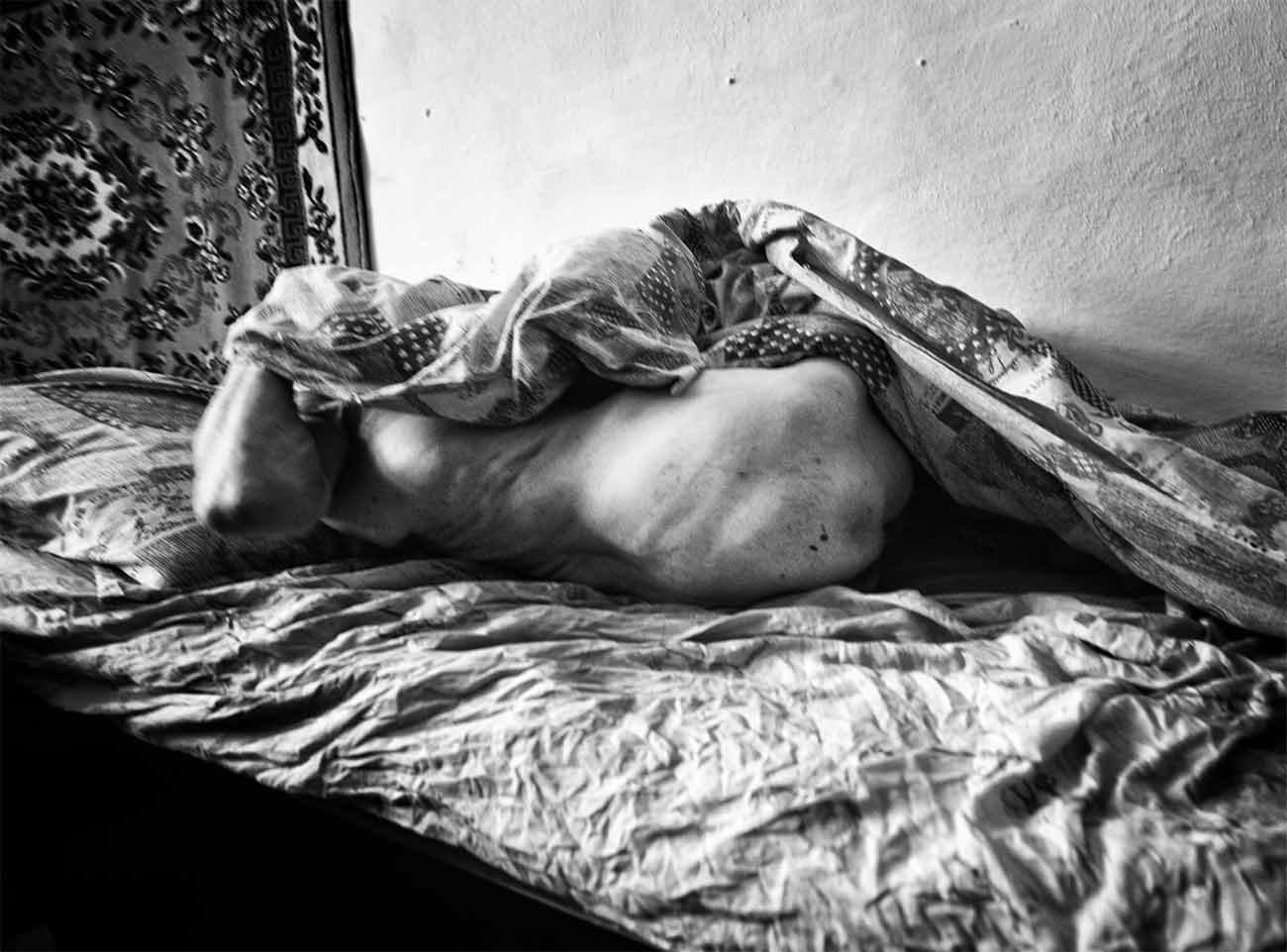
This story is very common and familiar to such institutions. The director was appointed a guardian for 150 incapacitated wards, according to the law, he must represent their interests and protect the rights of those entrusted to him, take care of their well-being, but in fact he does not even know who they are and what is happening to them, he does not fulfill his direct duties and makes no attempt to restore their capacity by teaching them the necessary social skills.
The system of psycho-neurological boarding schools, where 250-400 people live, is conceived in such a way that it can be controlled only with the help of violence, in order to cripple people who fall into its millstones.
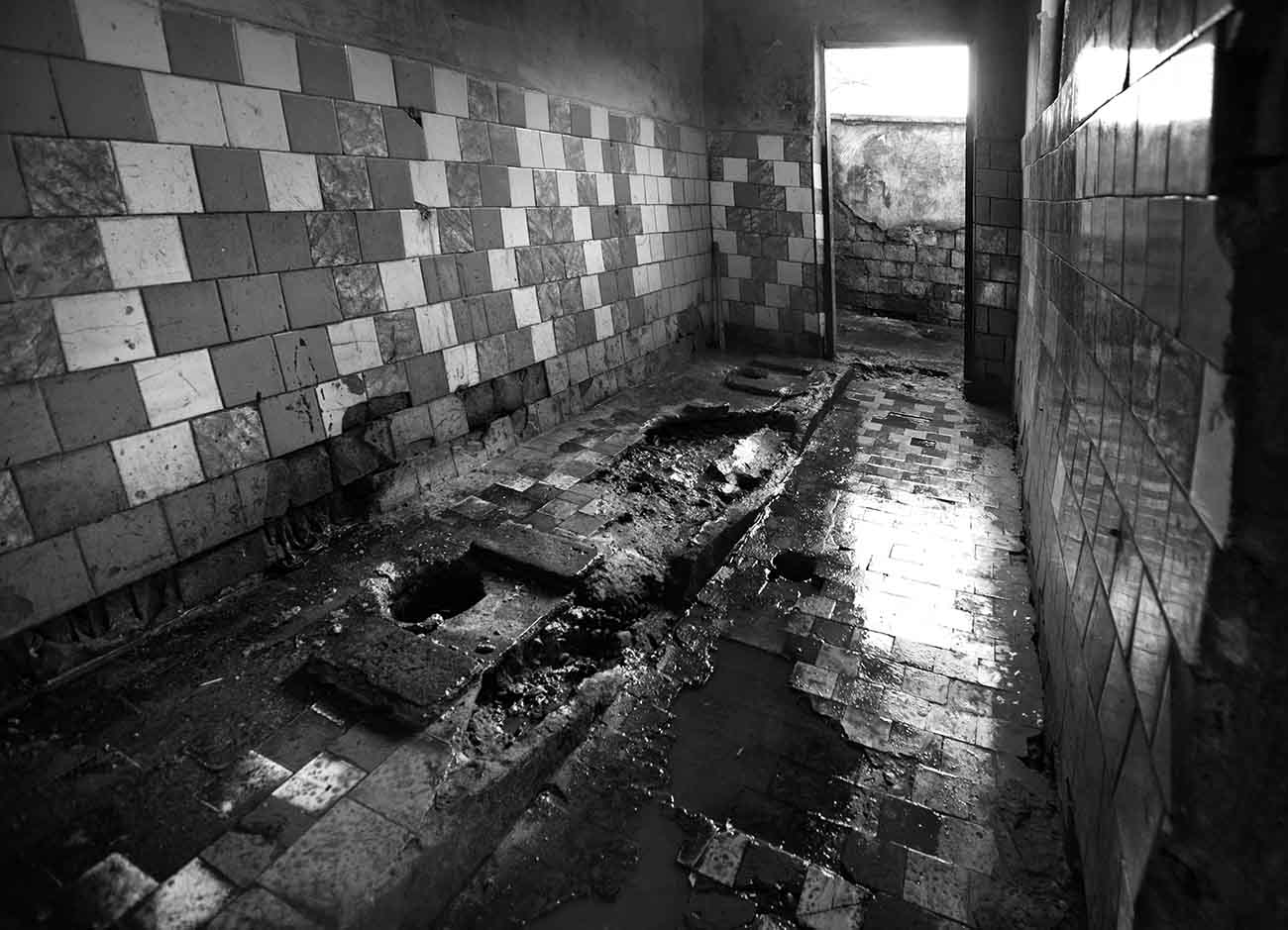
Control by law enforcement agencies or state structures to which such institutions subordinate is ineffective. It is unprofitable for officials to admit their guilt – they did not see it, and even more so to strain and change something. The Department of Social Protection of the Chernivtsi Regional State Administration, to which this institution is subordinated, reacted quite predictably.
They quickly created their own commission, made a demonstrative audit and issued a release stating that no significant violations were found during the audit. Such is the circular idiocy – government officials violate themselves, check themselves and, of course, do not see violations. And most importantly, they refuse to see the facts recorded by the monitoring group, even open criminal proceedings under 4 articles do not give weight to this problem in their eyes.


In 2005, the WHO adopted a declaration in which it secured the right of people with mental disorders to a full life in society, and not in closed institutions. The socialization and exit of such people into society is the main recommendation of the Council of Europe, designed to prevent violations of human rights as a result of rigid institutionalization. The normal practice of developed countries, where for a long time there has been no such savagery that we still thrive in, is the practice of accompanying living.
This is a form of social protection when a person in need of support, rehabilitation, the formation of independent living skills, training, further employment lives at home or in a group of people and can count on the support of specialists. Such a person is not isolated, but can arrange his life on an equal footing with everyone else, go to the store, communicate with other people, create families, and participate in the social and cultural life of his city or village.
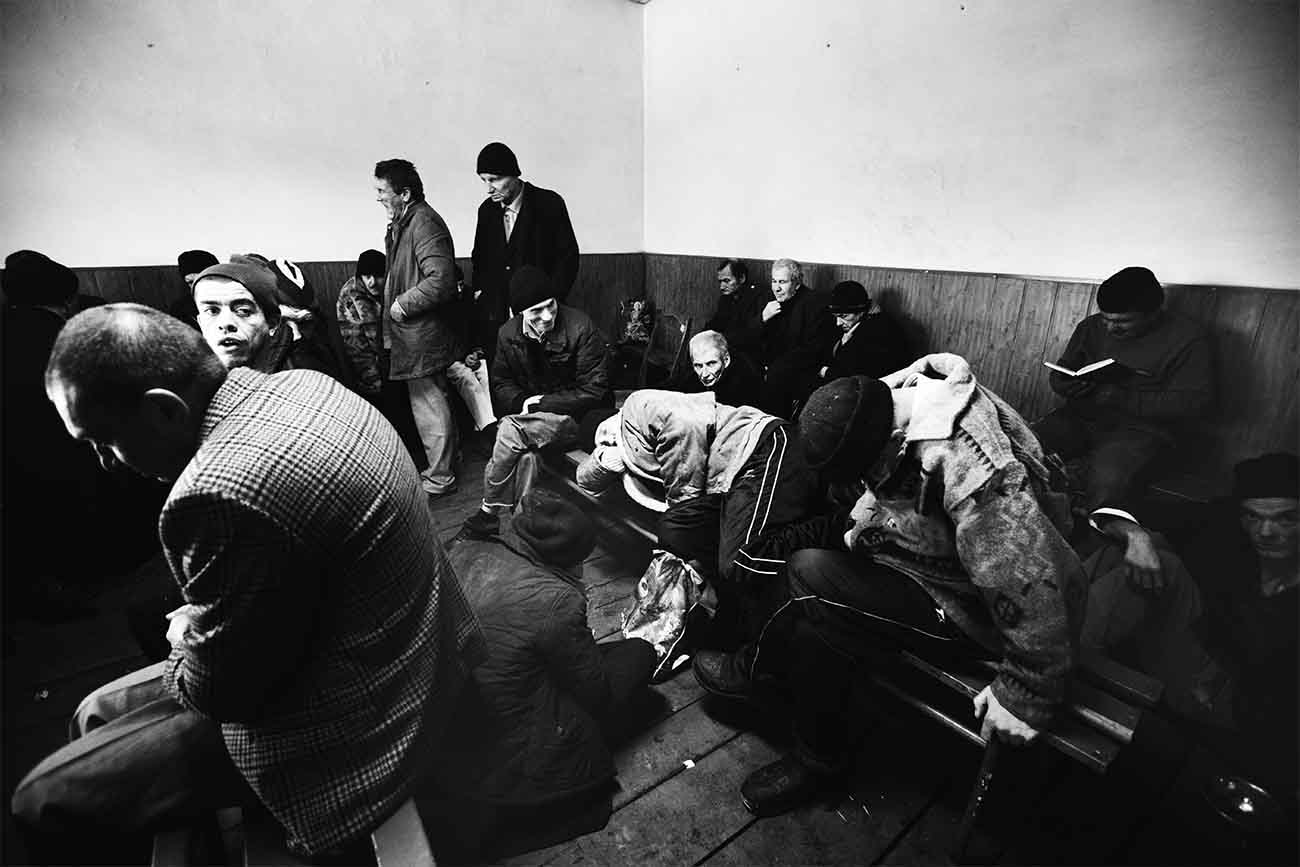
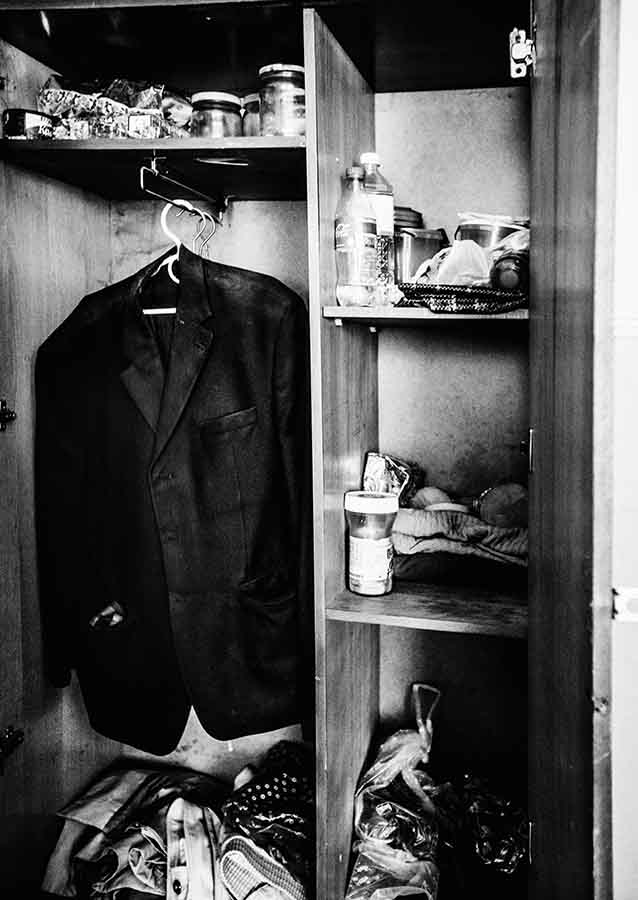
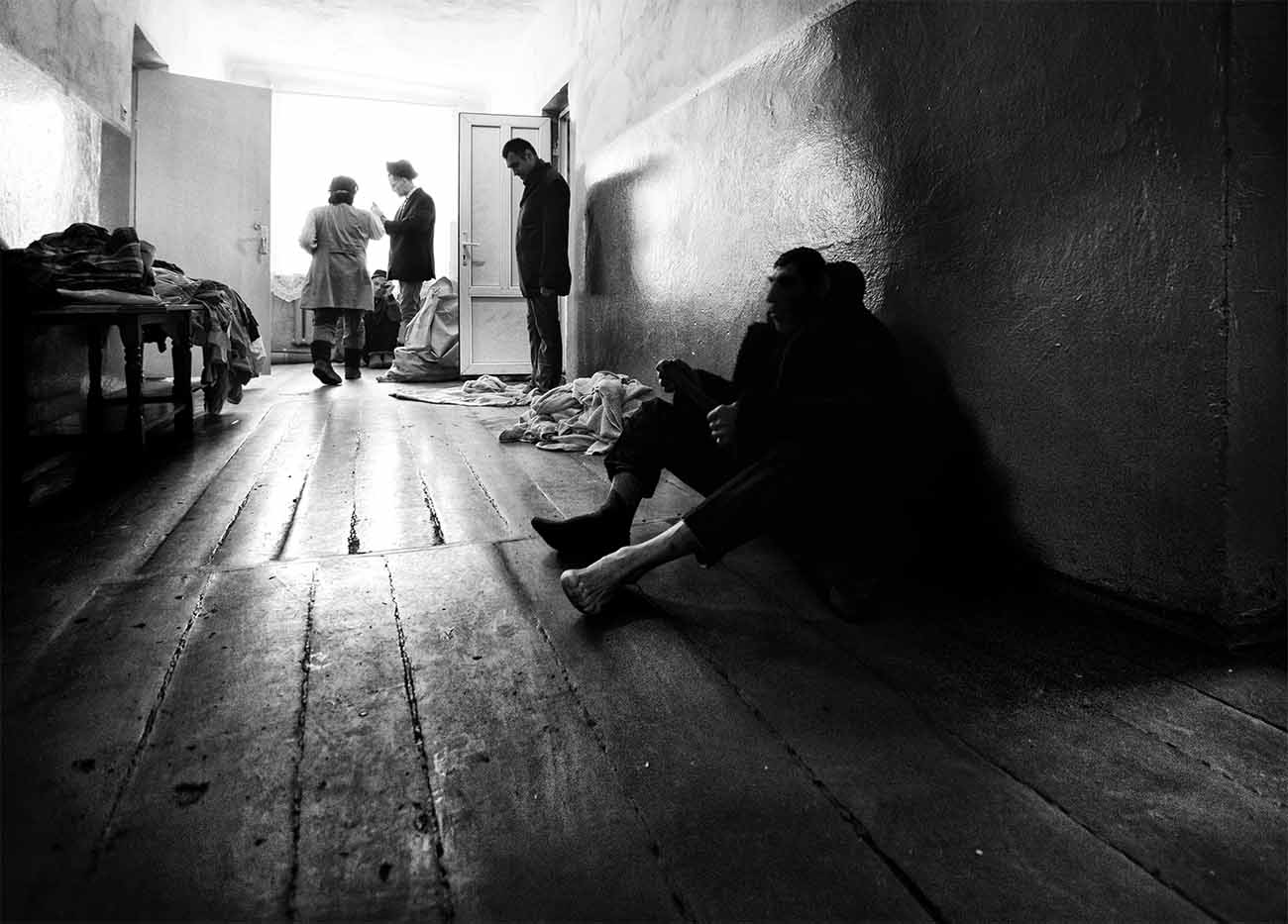
Created back in Soviet times, the punitive psychiatry is afraid of any attempts on the part of society to get inside, to see the real quality of life of the wards, to find out their problems. The closeness of such institutions and the fear of public control – this, unfortunately, is the real reality.
This is so obvious – the level of development of the society is determined precisely by how it treats the weakest – the elderly, people with disabilities and people with developmental disabilities.